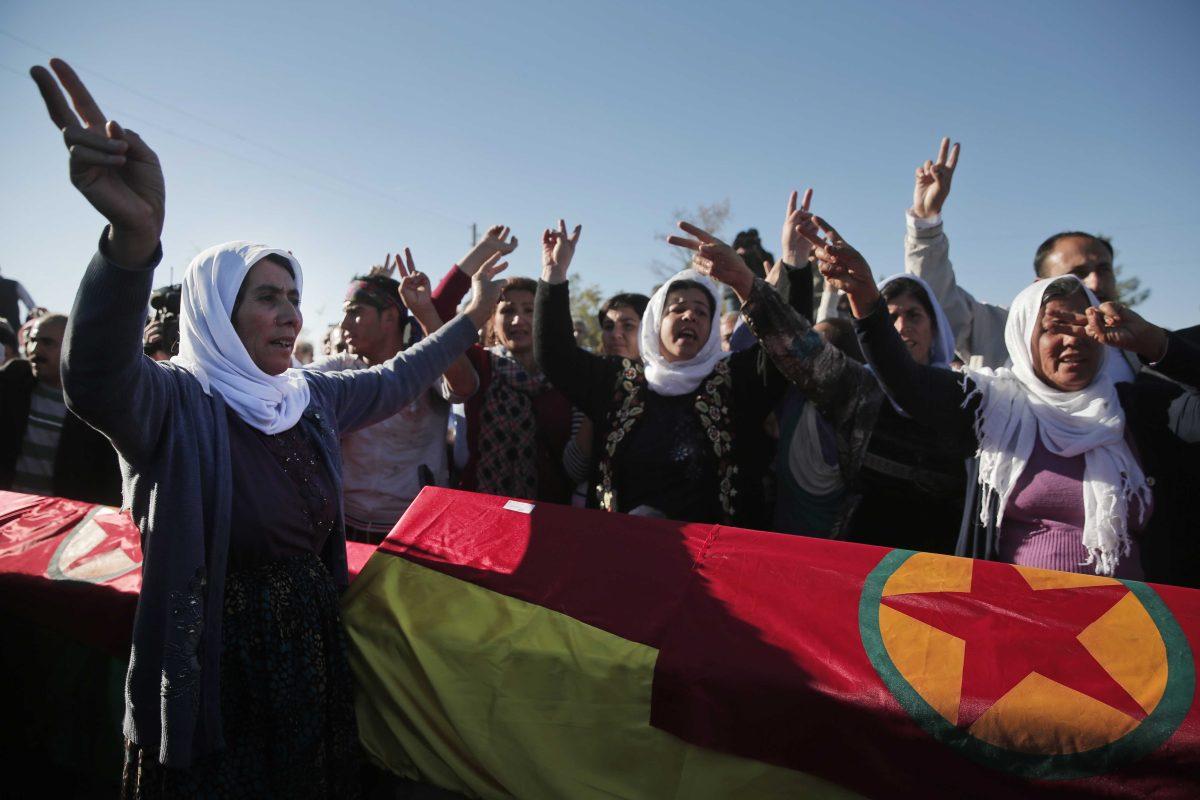We may like to think that living in the U.S. insulates us from shifting geopolitics, but events abroad tend to have a huge impact at home. Whether we like it or not, the Islamic State’s rapid conquests in Iraq and Syria are effectively redrawing the map of the Middle East.
Since the American government is reluctant to commit ground forces to restore the status quo, the task of fighting the Islamic State has fallen on the Kurdish populations in Iraq and Syria.
Even before the rise of the Islamic State, the Kurds were active in the Syrian Civil War, fighting both the Ba’athist regime of Bashar al-Assad and the jihadist rebels. To put it simply, they were, and continue to be, the only distinguishable good guys in the fight.
Given their willingness to fight both despots and jihadists and the region’s crumbling geopolitical order, it’s only fair that the Kurdish people be given the right to self-determination. They have consistently had the West’s back, and a unified Kurdistan would act as a needed foothold for democracy in the Middle East.
The Kurdish people are an ethnic group in the region, inhabiting an area that lies within Turkey, Syria, Iraq and Iran. Despite having a population of roughly 30 million, they have no sovereign homeland. The best they have is an autonomous region with-in Iraq, or at least what’s left of it.
In 1916, the United Kingdom and France, with the consent of Imperial Russia, drew what would become the current political geography of the Middle East in the midst of World War I. The Triple Entente had decided who would have control or influence over specific areas of the Ottoman Empire, should they prove victorious over the Central Powers.
The deal is known as the Sykes-Picot Agreement, or the Asia Minor Agreement. In short, it created areas that would go on to become the modern states of Turkey, Iraq, Syria, Jordan, Israel and Lebanon, laying the groundwork for the worst neighborhood on the planet.
When the Islamic State first made itself heard in Iraq and Syria, the Kurdish Peshmerga, a force where the only requirement is to be a certified badass, stepped up to the plate and started going toe-to-toe with the Middle East’s new resident psychopaths.
More recently, they have been fighting for control over the Syrian town of Kobani, right along the Turkish border. While it looked as though the Islamic State was on the verge of seizing total control of the town, the U.S. military’s aid and air strikes have helped the Kurds push back.
It would not have even come close to an Islamic State victory had the Turkish government utilized the tanks and armor it had right on the border in assistance to the Peshmerga. As a NATO member, you’d think Turkey would be all about eliminating the biggest threat to instability in its own backyard.
However, given there are over 11 million Kurds living in Turkey, there is significant fear in Ankara about a push for Kurdish autonomy. So, while Kurds were fighting and dying to save a town right on their border, the Turks blithely sat by and did nothing, continuing the long standing tradition of the Kurds getting the short end.
With Syria’s descent into failed state status, and Iraq becoming the world’s largest open wound, the two biggest components of Sykes-Picot are effectively dead. Once the threat of the Islamic State is neutralized, there needs to be a serious conversation about Kurdish self-determination, if not outright independence. They have consistently proven that they’ve earned it.
Ryan McGehee is a 21-year-old political science and history senior from Zachary, Louisiana. You can reach him on Twitter @JRyanMcGehee.
Ethnic Kurds deserve self-determination, unification
Kurdish mourners flash the V-sign as the chant slogans in front of coffins, during the funeral of Kurdish fighters Hanim Dabaan, 20, Idris Ahmad, 30, and Mohammed Mustafa, 25, killed in the fighting with the militants of the Islamic State group in Kobani, Syria, at a cemetery in Suruc, on the Turkey-Syria border, Tuesday, Oct. 21, 2014. The three fighters_ two men and a young woman barely out of her teens _ were killed during the last few days battling Islamic State fighters in the Kurdish Syrian town of Kobani, also known as Ayn Arab, located on the border with Turkey. They were buried without their families present; in the chaos of war, since mid-September, hundreds of thousands of Kurds have become refugees, and contacting the families of those killed is not always possible. It wasn’t immediately clear if the families of the fighters even knew their loved ones were dead. (AP Photo/Lefteris Pitarakis)








